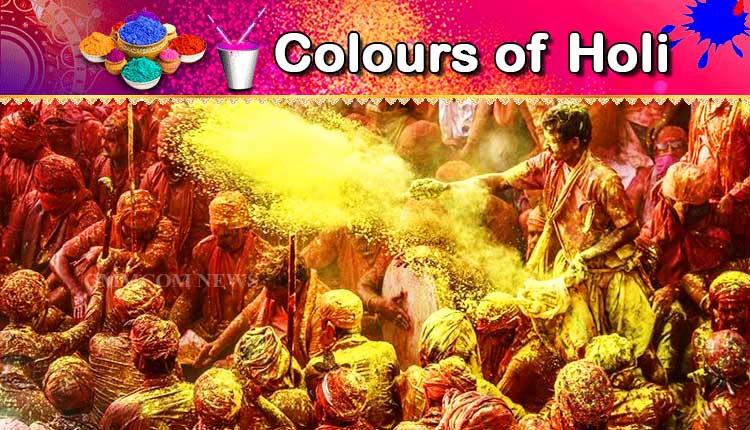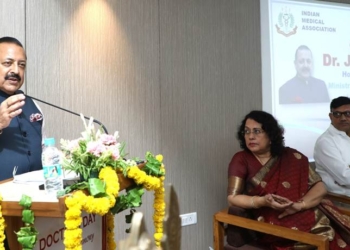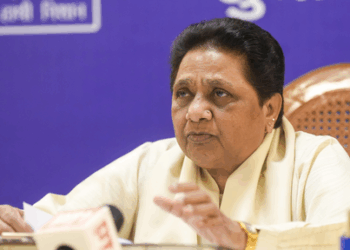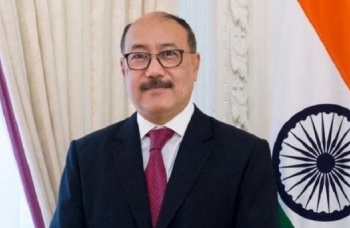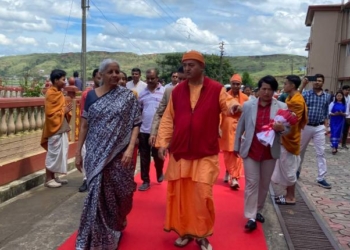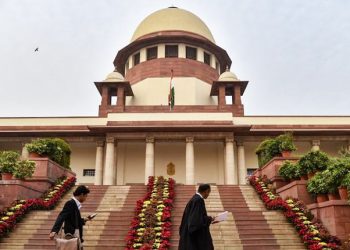New Delhi: If you enjoy colour and want to discover interesting information about Holi, here are the various names the holiday of colours is referred to and how it is celebrated across different regions in the country.
Holi is observed in a variety of ways depending on the state, reflecting India’s diverse cultural heritage.
Lathmar Holi – Uttar Pradesh
Lathmar Holi is observed four to five days before Holi in other states. However, it’s fascinating to observe how this festival is observed in the Uttar Pradesh towns of Nandgaon and Barsana in a rather unusual manner by playfully hitting men with wooden sticks in response to their teasing as part of a ritual. The towns, which are 42 kilometers from Mathura, are very well-known for their Lathmar Holi festivities.
Rang Panchami – Maharashtra
Holi is observed as “Rang Panchami” in Maharashtra, a province in western India. On this day, people enjoy traditional sweets and savory dishes while playing with coloured powders and singing and dancing to the rhythm of dhols. A distinctive practice of singing and playing musical instruments on the streets is also followed in some areas of the state.
Manjal Kuli – Kerala
Holi is observed as “Manjal Kuli” in Kerala, a province in the south. People take part in processions that feature traditional music and movement as well as coloured powders being thrown at one another. There is also a distinctive practice of singing songs of devotion to Lord Krishna.
Holla Mohalla – Punjab
The Punjab region commemorates “Hola Mohalla,” which is like Holi for warriors in appearance, sound, and feel. It is observed the day prior to Holi. The purpose of the celebration, which includes a stirring display of martial arts, horseback riding, and poetry recitation, is to honour the valor of Sikh warriors, especially those of the Nihang Sikh sect. Later, this is followed by movement, music, and colour.
Royal Holi- Udaipur
As the name implies, Udaipur celebrates Holi on a grand stage. The Mewar royal family still celebrates the dynasty’s customary holidays in the city that was once their kingdom. The present custodian starts the bonfire the night before Holi and burns the effigy of Holika. The next step is a flamboyant equestrian parade with the royal band. It’s quite the show!
Shigmo – Goa
Shigmo is the name of Goa’s spring celebration. In addition to playing with colours, it is planned as a huge carnival with traditional folk music and street dances. Goa is a coastal state where fishing is the main source of income, so fishermen’s boats are colourfully decorated with mythological and religious motifs. Shigmo is observed in two different ways: “Dhakto Shigmo” and “Vhadlo Shigmo,” which respectively mean “small Shigmo” and “big Shigmo.” Farmers and workers in rural areas enjoy Dhakto Shigmo, while everyone else celebrates Vhadlo Shigmo.
Kumaoni Holi – Uttarakhand
In many towns throughout the Kumaon area of Uttarakhand over the course of a few months, people celebrate Kumaoni Holi. The beginning of the sowing season for the agricultural community is marked by this celebration, which is more of a musical event than a celebration of colours as in the other states.
(IANS)




